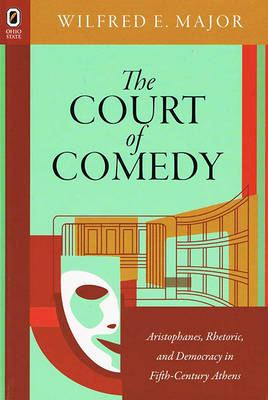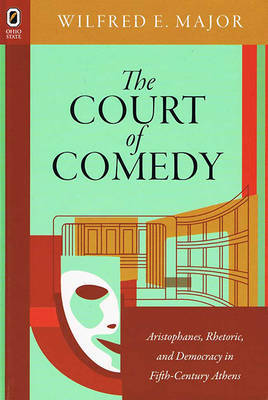
Bedankt voor het vertrouwen het afgelopen jaar! Om jou te bedanken bieden we GRATIS verzending (in België) aan op alles gedurende de hele maand januari.
- Afhalen na 1 uur in een winkel met voorraad
- In januari gratis thuislevering in België
- Ruim aanbod met 7 miljoen producten
Bedankt voor het vertrouwen het afgelopen jaar! Om jou te bedanken bieden we GRATIS verzending (in België) aan op alles gedurende de hele maand januari.
- Afhalen na 1 uur in een winkel met voorraad
- In januari gratis thuislevering in België
- Ruim aanbod met 7 miljoen producten
Zoeken
Omschrijving
The Court of Comedy: Aristophanes, Rhetoric, and Democracy in Fifth-Century Athens, by Wilfred E. Major, analyzes how writers of comedy in Classical Greece satirized the emerging art of rhetoric and its role in political life. In the fifth century BCE, the development of rhetoric proceeded hand in hand with the growth of democracy both on Sicily and at Athens. In turn, comic playwrights in Athens, most notably Aristophanes, lampooned oratory as part of their commentary on the successes and failures of the young democracy. This innovative study is the first book to survey all the surviving comedy from the fifth century BCE on these important topics. The evidence reveals that Greek comedy provides a revealing commentary on the incipient craft of rhetoric before its formal conventions were stabilized. Furthermore, Aristophanes' depiction of rhetoric and of Athenian democratic institutions indicates that he fundamentally supports the Athenian democracy and not, as is often argued, oligarchic opposition to it. These conclusions confirm recent work that reinterprets the early development of rhetoric in Classical Greece and offer fresh perspectives on the debate over the role of comedy in early Greek democracy. Throughout, Major capitalizes on recent progress in understanding of the performance dynamics of Classical Greek theater.
Specificaties
Betrokkenen
- Auteur(s):
- Uitgeverij:
Inhoud
- Aantal bladzijden:
- 242
- Taal:
- Engels
Eigenschappen
- Productcode (EAN):
- 9780814254219
- Verschijningsdatum:
- 1/01/2017
- Uitvoering:
- Paperback
- Formaat:
- Trade paperback (VS)
- Afmetingen:
- 152 mm x 229 mm
- Gewicht:
- 358 g

Alleen bij Standaard Boekhandel
+ 115 punten op je klantenkaart van Standaard Boekhandel
Beoordelingen
We publiceren alleen reviews die voldoen aan de voorwaarden voor reviews. Bekijk onze voorwaarden voor reviews.









